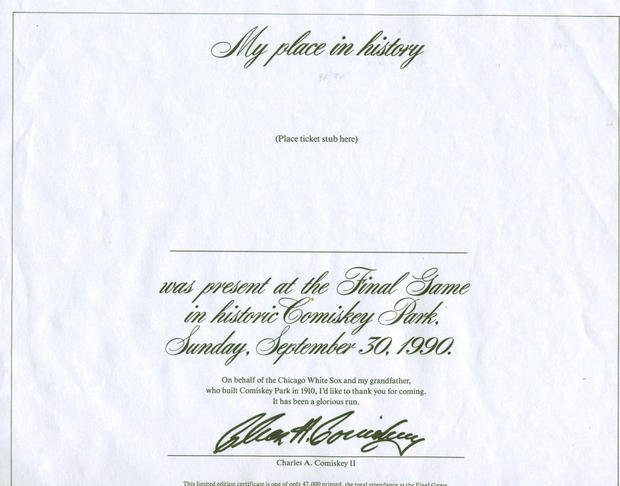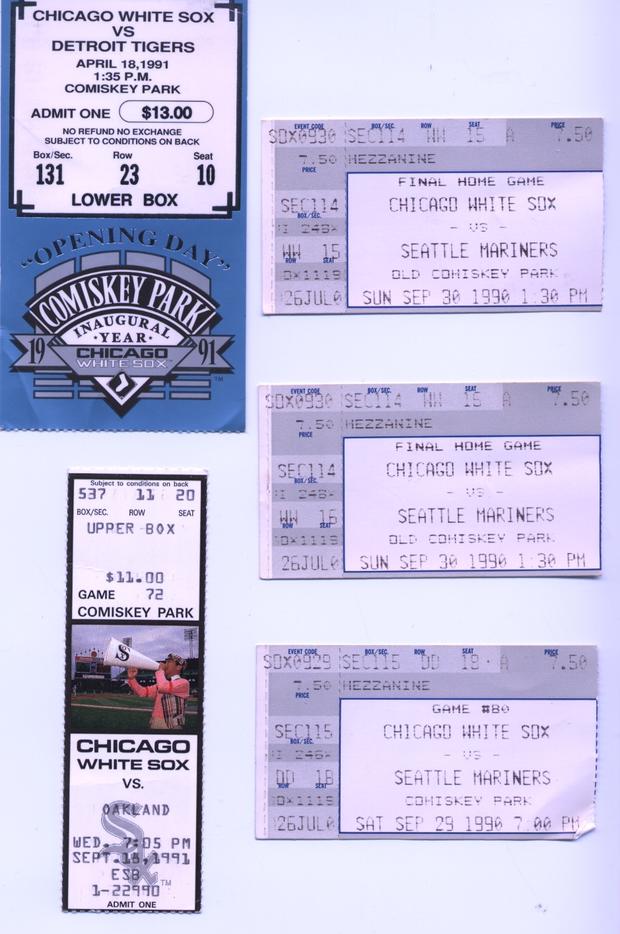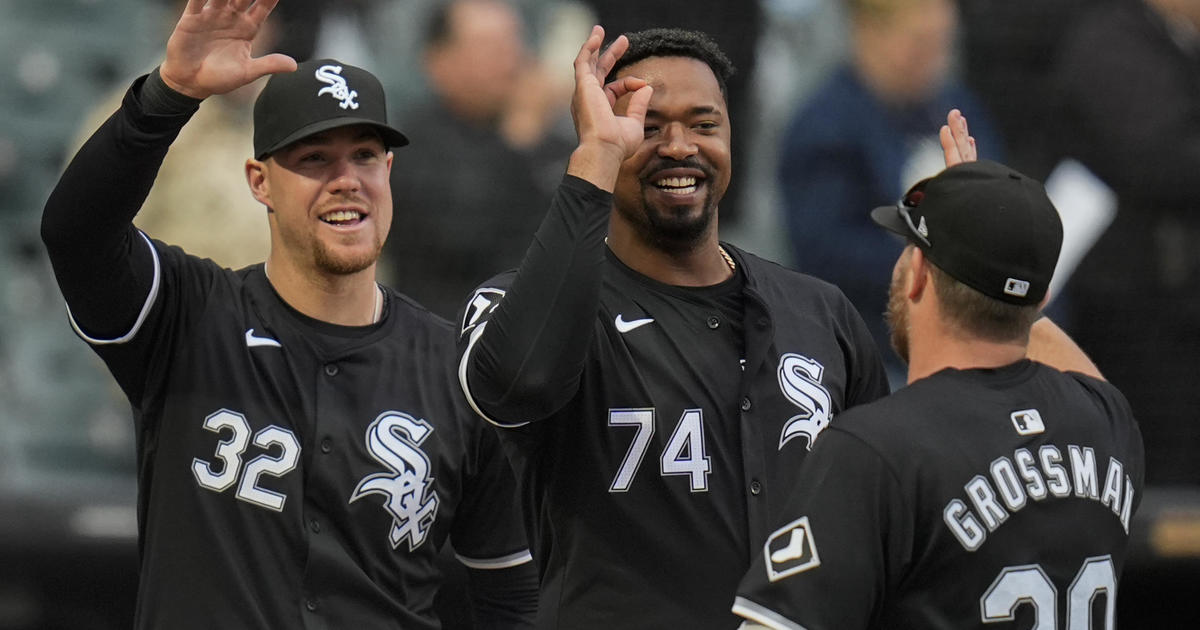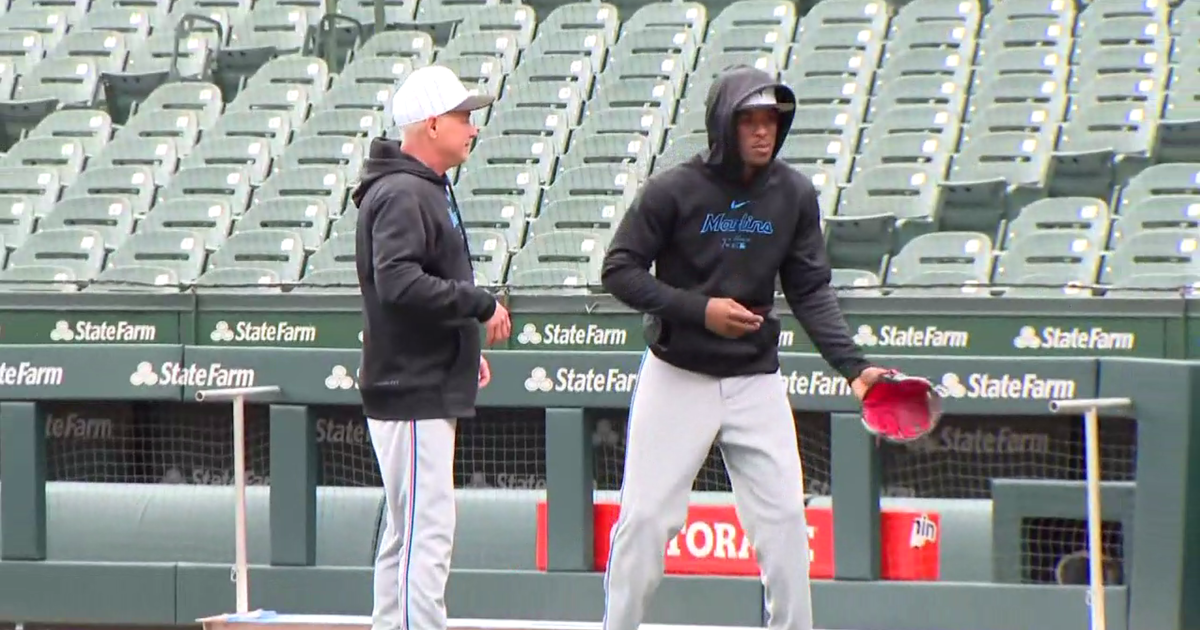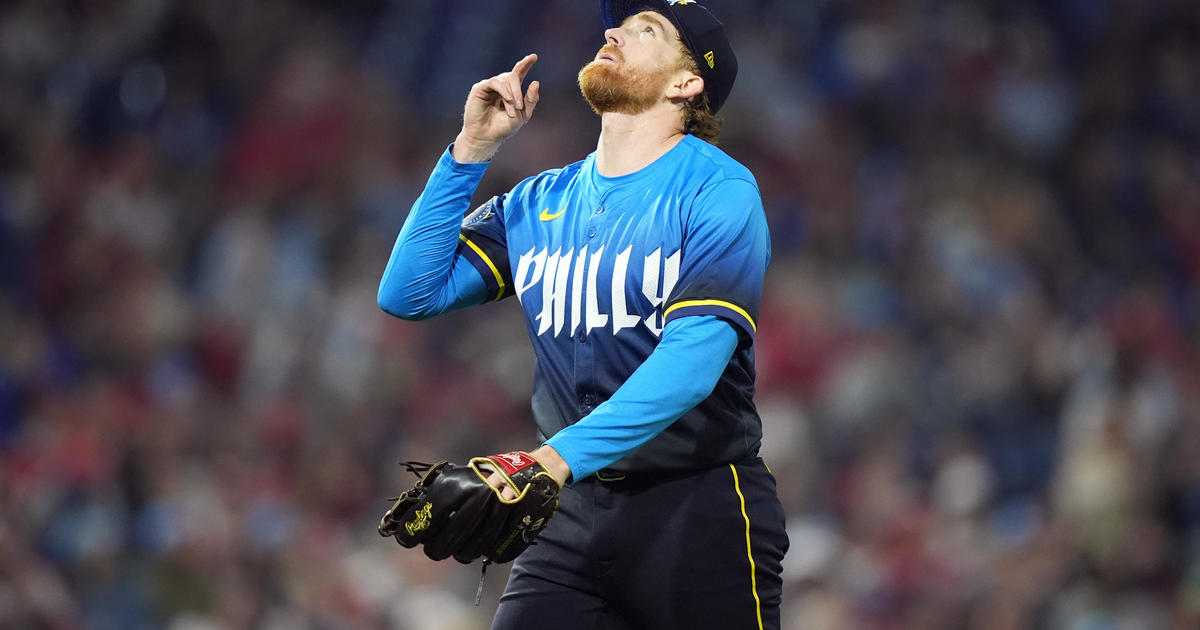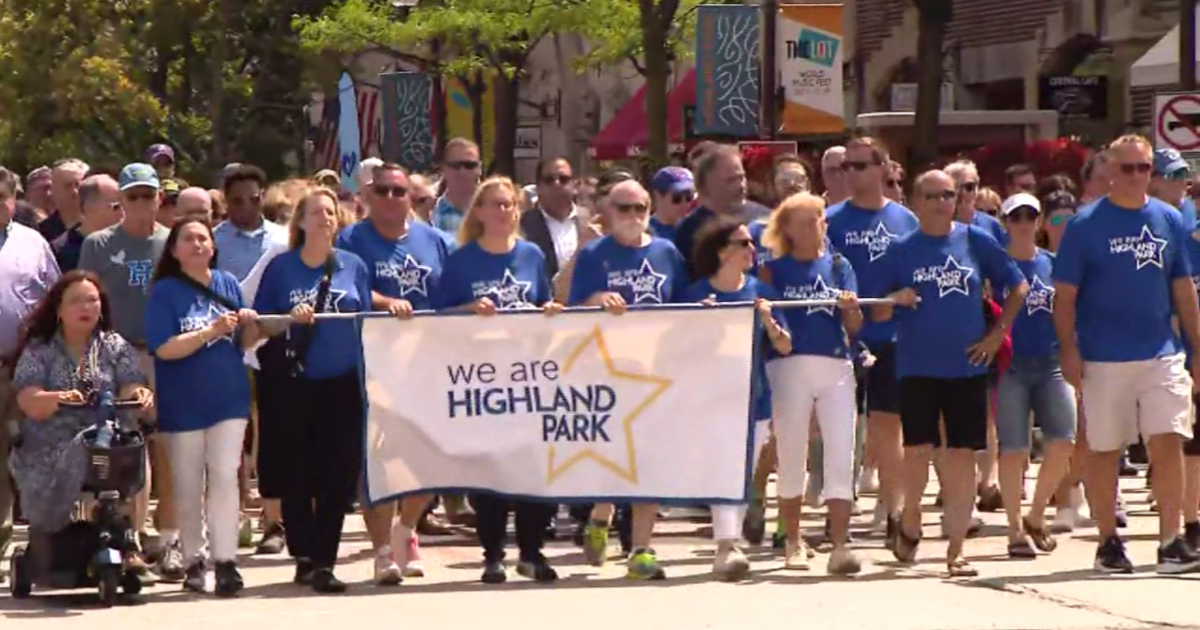Dorfman: 20 Years Of New Ballpark And New Era For White Sox
This is part one of a two-part blog, the second part will run on Wednesday.
By Daniel I. Dorfman--
CHICAGO (WSCR) -- Twenty years ago today President George H. W. Bush was basking in high approval ratings following the first Gulf War, Cheers was the popular TV show in the land, and on a cloudy Chicago afternoon, a new era started for the Chicago White Sox. On April 18, 1991, new Comiskey Park opened, starting a new era in Chicago baseball and at the same time finishing a chapter of team history that nearly concluded with the franchise leaving Chicago.
As hard as it is to believe it was this day 20 years ago, that after years of sometimes acrimonious debate, the White Sox moved into what was then known as new Comiskey Park. The result on the field might have been pretty ugly that afternoon with the Sox losing 16-0 to the Detroit Tigers, but it was still a great day for the White Sox.
That over 42,000 people were able to get to a new ballpark that day was a result of some of strong arm tactics on all sides.
Old Comiskey Park had opened in July 1910 and by the mid-1980s, the White Sox ownership had started talking publicly about the need for a new ballpark as the venerable park at 35th and Shields was showing its age.
"I remember it was little," said Sox shortstop Omar Vizquel, the last active major leaguer who played at the old park. "I remember the little dugouts and clubhouses."
But with the Sox struggling on the field and attendance down, there wasn't a lot of desire in Springfield to come up with the funds to build a ballpark for the Sox. A number of proposals for new ballparks both inside Chicago and even out to Addison wound up going nowhere and by 1988, owners Jerry Reinsdorf and Eddie Einhorn were seriously contemplating moving the Sox who had played in Chicago since 1900, to St. Petersburg, Florida to take advantage of an offer presented to them by Florida officials.
But then-Illinois Governor Jim Thompson, a Cub fan, was determined not to let that happen.
"How many cities in the U.S. have two major league teams?" Thompson said. "I didn't want to lose one. I was not about to let them go. They didn't want to go."
Yet prospects looked bleak when on June 30, 1988 with just eight hours to go before the end of the legislative session and Thompson reached the state capital in Springfield. It appeared a fait accompli that the Sox would leave town and Florida TV crews were in Springfield expecting to bring good news back home.
But Thompson told the head of the GOP Senate at the time, James "Pate" Philip, that it was very important to him to get the legislation passed to get the funds in place to build a new ballpark across the street from the old park.
"Pate this is personal," Thompson recalls saying. "I really want this!"
With Thompson and Philip cajoling GOP Senators, the measure passed the Senate and it was then hand delivered to the House, where Speaker Mike Madigan worked the aisle getting Democratic votes and Thompson did the same with lawmakers on both sides of the aisle.
"But if I had not gone to the floor, it would not have passed," Thompson said.
A few minutes after midnight with Madigan stopping the clock, a 60th vote came in to ensure passage and even though the Sox had lost on the field that night 5-3 to the New York Yankees, they had come out of Springfield with their biggest victory in years.
There was a great deal of criticism that taxpayer funds were used to construct a ballpark for a Major League Baseball team, but Thompson insists to this day that the tax was placed on visitors to Chicago since it came via a hotel-motel tax. Specifically, the bill called for the creation of the Illinois Sports Facilities Authority which authorized the floating of bonds to pay for the construction of the park with a hotel-motel tax.
"What a deal, a ballpark for nothing," Thompson says today as he is now chairman of the ISFA. That same hotel-motel tax was used to pay for the renovation of Soldier Field in 2002 and 2003.
"In return for saving the White Sox, they brought us a World Series. How many World Series have we had?" Thompson notes as he acknowledges he is now a fan of both teams.
Eventually the original construction of the new Comiskey Park cost $137 million with the White Sox now paying approximately $2 million annually in rent plus a share of the maintenance and operations costs.
"Our club has enjoyed on-field success in the new park, from an All-Star Game in 2003 to postseason appearances in 1993, 2000, 2005 and 2008, and of course, we all enjoyed a World Series Championship in 2005," Reinsdorf said. "Ultimately, a ballpark is for and about the fans. Of the franchise's Top 20 all-time attendance totals, I think 17 of those seasons have come since 1991. That speaks to the popularity of Major League Baseball, to the loyalty and devotion of Sox fans and to our on-field success, but it also speaks to the ballpark and the great time fans have when they come to White Sox games."
On Sept. 30, 1990, with Vizquel going 3-for-4 as a member of the Seattle Mariners, the White Sox closed out old Comiskey Park with a 2-1 victory over the Mariners and 200 days later a new chapter would start for the Sox.
But it was not a chapter that would start smoothly either on the field or off.
Do you agree with Daniel? Post your comments below.
Daniel I. Dorfman is a local freelance writer who has written and reported for the New York Times, Philadelphia Inquirer and the Boston Globe among many other nationally prominent broadcast, online and print media organizations. He is also a researcher for 670 The Score. You can follow him on Twitter @DanDorfman To read more of Daniel's blogs click here.
